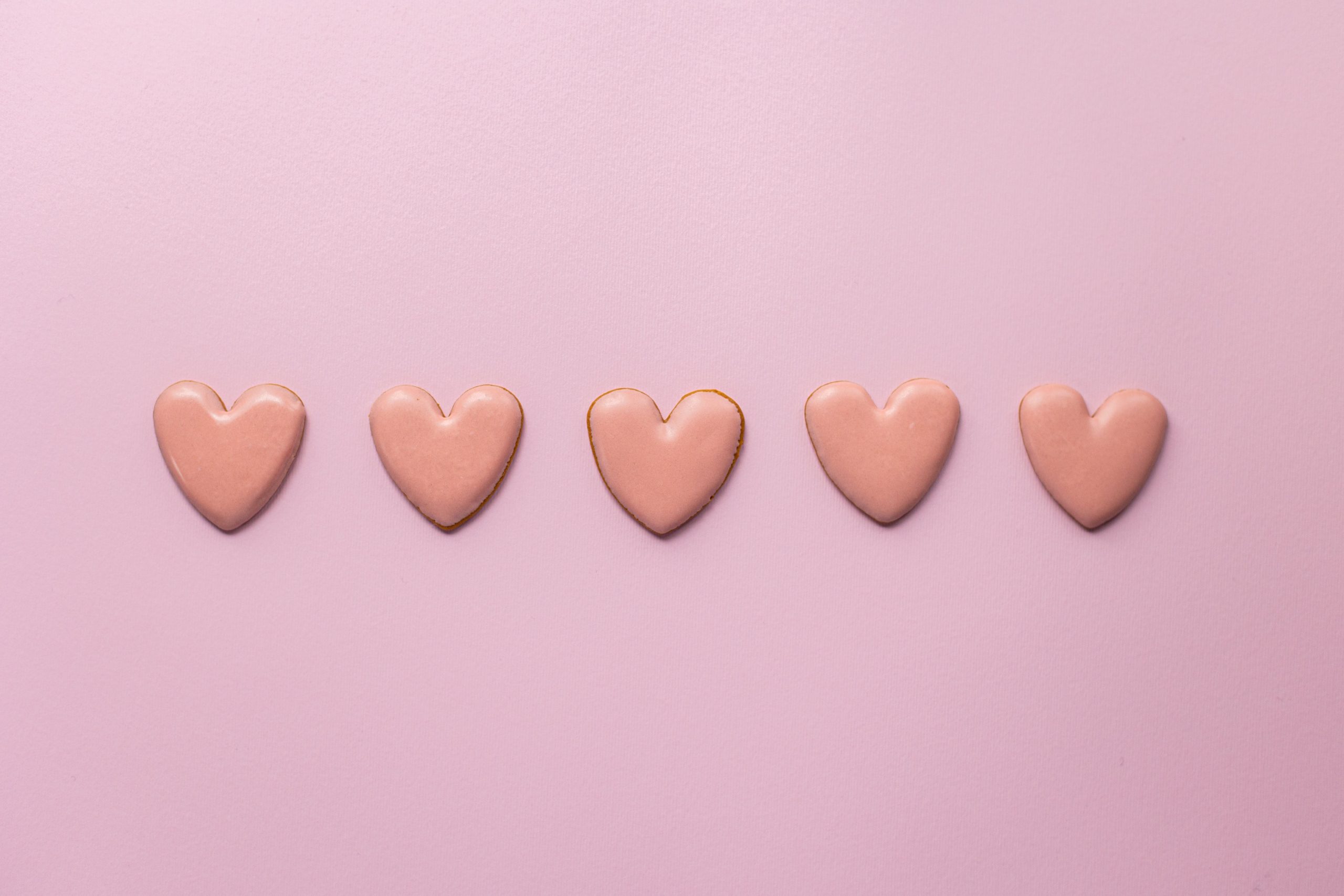Is Love a Choice, a Feeling, or a Skill?
Is love a choice, a feeling, or a skill? Or is it all three? To answer this question, we first have to define love. In short, love is a strong sense of affection and attachment towards someone or something. It’s one of the most desired and sought-after experiences in the world. If one thing’s for sure, it’s that love is intense.

Is love a choice, a feeling, or a skill? Or is it all three? To answer this question, we first have to define love. In short, love is a strong sense of affection and attachment towards someone or something. It’s one of the most desired and sought-after experiences in the world. If one thing’s for sure, it’s that love is intense.
Let’s take a look at whether love is a choice, a feeling, or a skill, one by one.
Is love a feeling?
A feeling is an emotional state or a reaction. Bearing that in mind, can love be included in this bracket? Yes, love can be described as a feeling. In fact, it is arguably the most intense and powerful feeling of all. Love can make you do crazy things. Some people risk everything for the one they love.

Love stimulates hormones in your brain that make you feel happy. When you’re in love, dopamine is released, which creates a feeling of pleasure. But it doesn’t stop there. Oxytocin is released, too, which promotes bonding and intimacy. Finally, the early stages of love are associated with lower levels of serotonin, which is believed to drive the infatuation that is associated with being in love.
While love is a powerful feeling in itself, it also comes with a whole range of emotions, including joy, excitement, elation, warmth, tenderness, and security. On the flip side, it can also bring feelings of jealousy, insecurity, anger, fear, and sadness. So, while it’s fair to say that love alone is a feeling, it can also cause many other emotions.
Is love a choice?
Making a choice involves intentionally selecting a path to move forward. So could love be described as a choice? Yes and no. Healthy love is a choice, but unrequited love often isn’t.
Mutual, healthy, lasting love is a choice because you choose to open yourself up to it and continue cultivating your connection. You choose to focus your attention on them, to be vulnerable, and to risk rejection.
You also make choices as a couple. Together, you choose to make time for each other, communicate and move things forward. There are situations where people don’t fall in love because they choose not to. Perhaps it’s down to life circumstances, or they just aren’t ready.
This raises a question. If love is a choice, is it one we make on a conscious level or a subconscious level?
Even though a lot of the examples we just ran through involve conscious choices, sometimes falling in love, or not falling in love, can be a decision that we make subconsciously. For example, being emotionally unavailable or avoiding intimacy can be driven by subconscious decisions.
A significant portion of people who are emotionally unavailable actually want to find love on a conscious level. If you asked them, they would tell you, “Of course, I’m looking for my life partner!” But on a subconscious level, they can end up pushing people away.
Is love a skill?
A skill is an ability to do something well. The word implies that it must be cultivated, practiced, and honed. Could love fall into this category? The answer is yes. Love is a combination of many skills.
It requires good communication, emotional intelligence, and empathy. It also involves giving and taking, observing boundaries, emotional agility, and the ability to understand the other person. Love requires maintaining a connection with your partner when you face challenges. You might need to learn how to apologize, forgive, compromise, or work through tough conversations.
All of the above can be improved with practice. If you’re not good at communicating, you can work on your communication skills. If you’re not great at setting boundaries, that can also be developed and improved over time.
You might not be top of the class in all the aspects that factor into love but that’s okay. You don’t need to score 10/10 in every category. For example, if you find it difficult to read people, even with practice, you might never be the best at it. But that doesn’t mean you can’t love and have a healthy, meaningful relationship with someone.
Ultimately, love is something that you, as an individual, can become better at. The individual skills that play a role in love can be cultivated in different ways. And they can be improved through all kinds of relationships, including romantic, platonic, and professional. Learning to compromise in work can be a valuable experience that also applies to relationships.

Different combinations of choice, feeling, and skill
Let’s analyze what happens in relationships that benefit from, or lack, choice skill or feeling.
Scenario 1 = Choice + Skill – Feeling
If you take a scenario where you choose to love someone, and you have the skills to do so without feeling, it’s simply companionship. You might have a healthy, fulfilling relationship, but it’s not romantic love. It could even be platonic love. But you won’t feel that sense of deep connection and passionate emotion that characterizes true, romantic love.
Scenario 2 = Choice + Feeling – Skill
If you have the feeling of love and choose to put the effort in, but you lack the skills to make it work, you’ll find yourself in an unhealthy relationship. This can manifest as a number of problems, such as poor communication or a lack of awareness of the other person’s needs. It’s unlikely that relationships of this kind last the course. And if they do, they tend to be very challenging.
Scenario 3 = Skill + Feeling – Choice
In this situation where you have the feeling of love and the necessary skills, but you don’t choose to love someone, you will drift apart. You may not choose to love someone because you are prioritizing other things in your life or you don’t feel that your partner is worth the effort. These are the kinds of relationships that start with a bang but end up fizzling out over time.
Scenario 4 = Feeling – Skill – Choice
If you have only the feeling of love without choice and skill, it’s simply a crush or infatuation. A crush can be powerful and thrilling, but it won’t develop into something meaningful if you don’t choose to cultivate it and if you don’t have the skills to maintain a healthy relationship.
Scenario 5 = Skill – Choice – Feeling
In this scenario, you have the skill to be good at love, but you don’t choose to pursue it, and there’s no feeling of love. This is a relationship that most likely won’t get off the ground unless there are external circumstances that push you to be together. In this situation, you simply don’t have the motivation to make it work.
Scenario 6 = Choice – Skill – Feeling
In a situation where you choose to love someone but you don’t feel it and you don’t have the skills, it’s likely that the relationship will lack passion and be challenging in a lot of ways. It probably won’t last. In this scenario, the effort is there, but without the feeling of love, you will have a platonic relationship. And without the skill, you won’t be able to have a mutually fulfilling relationship.
Scenario 7 = Choice + Skill + Feeling
Voilà! Now, this is the ideal scenario. When you have all three together, you have the perfect recipe for a successful, fulfilling, long-term relationship. Of course, both people need all three ingredients for the relationship to really work. When both parties have all three, it’s a love that can stand the test of time. You have the passion, the effort, and the competency to make it work.
Unrequited love
We have an interesting situation to consider that we haven’t fully explored on yet. What about unrequited love? If love is a choice, surely you would choose to fall in love with someone who loves you back?

Unrequited love is characterized by intense feelings of desire and affection for someone who does not return the feeling. In some cases, what someone considers to be unrequited love is really just infatuation. This is often the case when someone doesn’t really know the other person but is obsessed with them. They usually idealize the person and see them as perfect, when in reality, they know very little about them.
Unrequited love can be real love, though. You most commonly see this when a couple has been together for a long time, and one person has fallen out of love while the other is still very invested in the relationship.
When it comes to unrequited love, the feelings of love are definitely present. The skills may or may not be present. But choice is the most interesting factor here. People may or may not have chosen to fall in love with someone who doesn’t love them back.
If they have chosen the path of unrequited love, it may be at a subconscious level, and it likely stems from deeper-seated issues, as well as a lack of self-love. If they haven’t chosen to fall in love with someone who doesn’t return their feelings, they may still end up in love with that person, but the love won’t be healthy, fulfilling, or lasting.
The verdict on whether love is a choice, a feeling, or a skill
It’s clear that there are many different elements to love and that it is far from a simple concept. To have the purest and most fulfilling love possible requires many ingredients. Our post about the 50 greatest deep love quotes delves deeper into the dynamics of true love.
Healthy, romantic, lasting love is a choice, a feeling, and a skill. If you don’t choose to love, your love won’t last. If you don’t feel love, your love will be platonic. If you don’t have the skills to love, your love will be destructive.
It’s also a choice we pursue at a conscious and subconscious level. It’s a feeling of intense attachment and affection for someone. And finally, it’s a skill that can be cultivated through practice, learning lessons, and experience.
Love is all of these things, and more.




